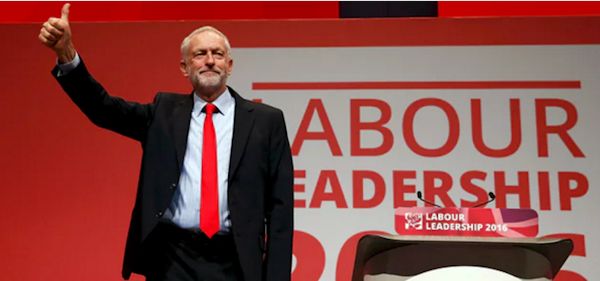Jeremy Corbyn - the pros and cons
Posted on: 26 September 2016 by Lisa in 2016 posts

September was a big month for politics. Not only did we host a live debate for our new students during freshers week, there was also the big question of who would win in the Labour leadership race.
Following Jeremy Corbyn’s decisive re-election as Labour leader, we asked Dr Jon Tonge to tell us what he thinks Jeremy Corbyn has achieved so far – and failed to achieve?
A new lease of life for Labour?
"On the plus side for Labour, Corbyn has massively re-invigorated a moribund Labour Party. Following the Brown and Miliband defeats in 2010 and 2015 respectively, Labour needed a fresh approach. The intellectual approach of New Labour, successful in its time, appeared exhausted after the economic crisis of 2008. The party lost 5 million voters between the heady days of 1997 and the twilight of 2010-15.
Corbyn and his Shadow Chancellor McDonnell have attempted to enthuse disillusioned former Labour voters, members. With over 600,000 members, Labour is now the largest left-of-centre party anywhere in Europe. The Corbyn strategy is to mobilise coalitions of minorities, former non-voters and new voters behind Labour. Given the problems besetting the Conservative government over Brexit, there is space for a reinvigorated Labour Party to occupy."
Building trust is a must
"But – and it’s a big but – Corbyn has not given any indication that he has given serious thought over how to attract any of the 11.3 million voters who supported the Conservatives at the last election (or the 3.9 million who voted UKIP or the 1.5 million who voted SNP). If Labour could not be trusted on the economy under Miliband, how will a Corbyn-McDonnell axis achieve that trust?
Before he can truly attract voters to his party, however, Corbyn has to entice his own MPs into backing him and re-joining the Shadow Cabinet. The current talent pool is woefully thin. Yet there are few signs that the 175 Labour MPs who, in an unprecedented move, declared no confidence in their leader, have been converted by the second coronation in Liverpool. Until those MPs are won over – and a general election will eventually concentrate minds – Labour’s internal navel-gazing will continue at the expense of winning over floating voters."
We always encourage our politics students at Liverpool to look at both sides of the debate, so let us know what you think!
Keywords: jeremy corbyn, labour, politics, jon tonge, liverpool university.